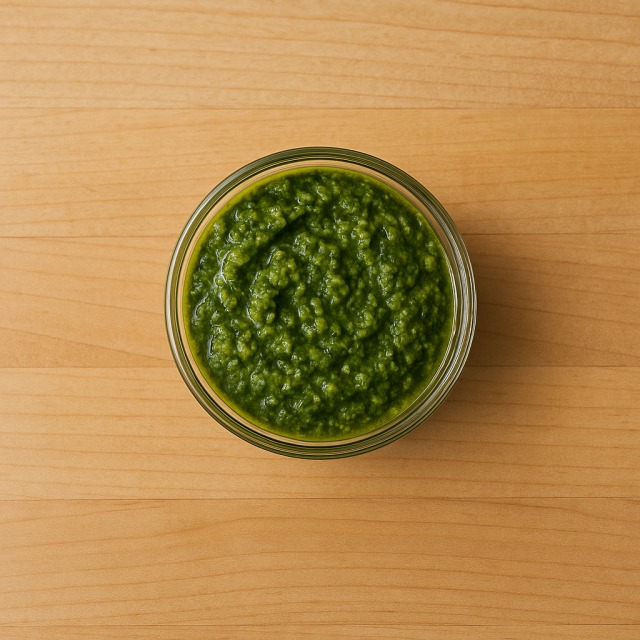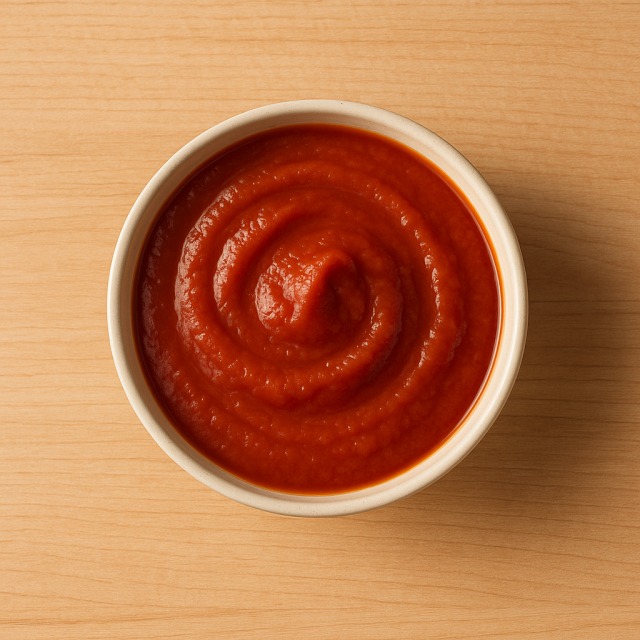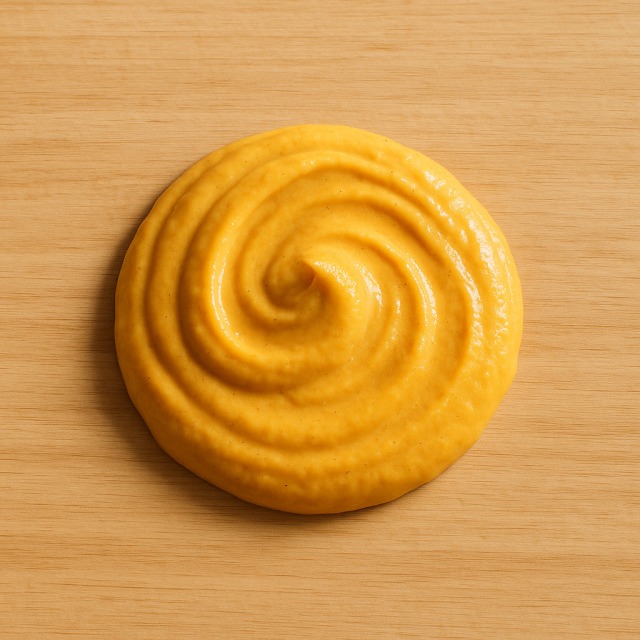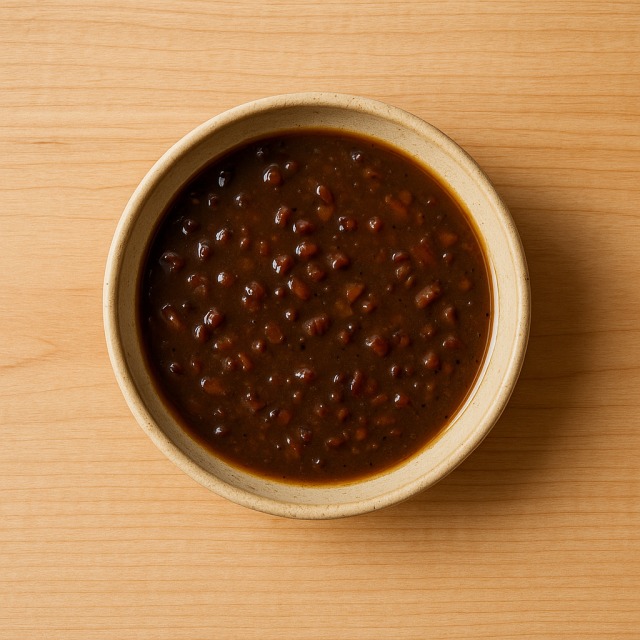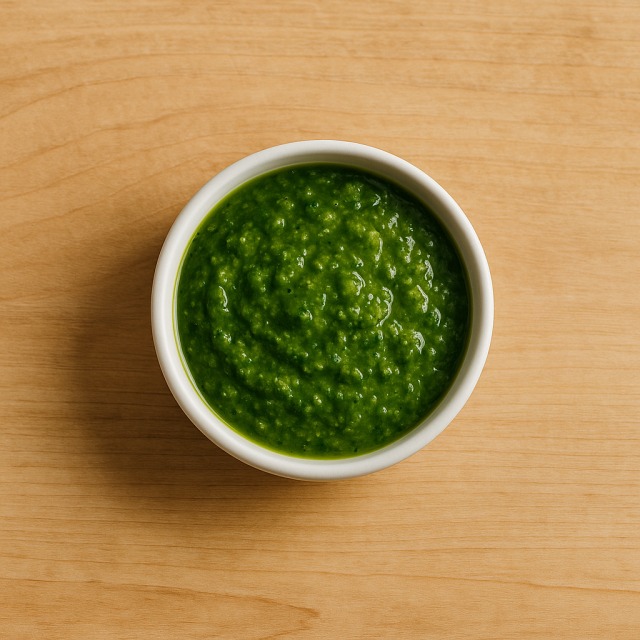Calorie Chart / Seasoning & Sauces / Carbonara sauce
How Many Calories Are in Carbonara sauce?
Calculation of the nutritional value & Recommended Dietary Intake of carbonara sauce
For g and a calorie requirement of kcal
| Calories 14 kcal | Proteins 0.5 g | Lipids 1.1 g | Carbohydrates 0.8 g |
| 1% | 1% | 2% | 0% |
Health benefits of carbonara sauce
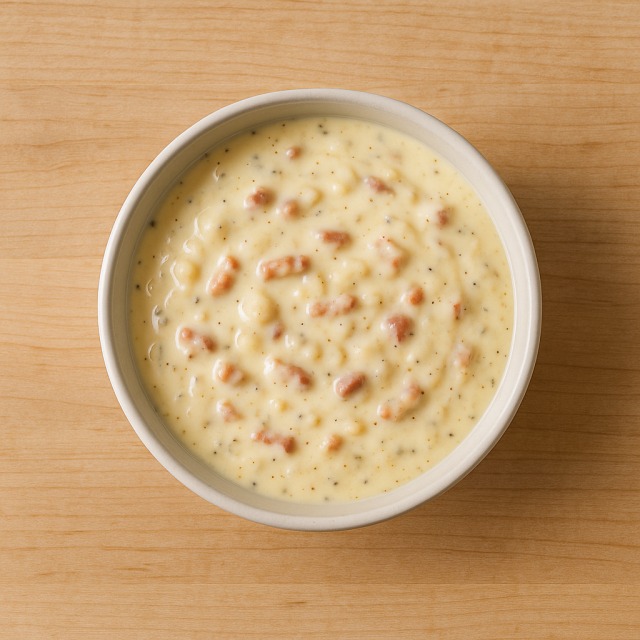
Carbonara sauce - 100g
Calories 96 kcal
Proteins 3 g
Lipids 7 g
Carbohydrates 5.3 g
With 96 kcal per 100 g, carbonara sauce can be considered a moderate-calorie condiment, especially when compared with richer options such as mayonnaise or Hollandaise sauce. Its calorie profile is largely driven by the natural fats of diced bacon and the proteins of egg and Parmigiano.
The presence of hard cheese and eggs provides calcium and phosphorus that contribute to bone health, as well as vitamin B12 and riboflavin (vitamin B2), which support energy metabolism. You will also find small amounts of vitamin A from the egg yolk. Although not a vitamin, the black pepper traditionally used supplies piperine, a compound studied for its supposed – but not yet fully confirmed – antioxidant effects.
Historically, the recipe is traced back to the Lazio region of Italy. One theory (still debated) states that American soldiers stationed near Rome during World War II traded their bacon and powdered eggs, inspiring local chefs to create the creamy preparation that later became famous worldwide. Knowing this anecdote will not change the calories, but it does place carbonara sauce in culinary history.
Because carbonara sauce delivers moderate calories while offering 3 g of proteins per 100 g, it can fit into a balanced diet when portion size is monitored and paired with high-fiber or vegetable-rich dishes.
Tips for incorporating carbonara sauce into a balanced diet
To enjoy carbonara sauce without letting calories add up too quickly, keep the serving around 60 g per plate and toss it with al dente pasta. Balance the dish with a generous side of roasted broccoli or sautéed zucchini; the fiber helps you feel full for fewer calories.
Looking for variety? Replace half the bacon with smoked fish such as smoked salmon and add fresh dill for a lighter "mare e monti" version. Another idea is a carbonara-style risotto made with rice; stir in the sauce at the end and fold in diced mushroom cream for extra umami without dramatically increasing calories.
If you need more proteins for post-workout recovery, mix through grilled strips of chicken breast. Conversely, for a lower-calorie lunchtime option, use spiralized vegetables instead of pasta and top with a spoonful of sauce, a technique similar to serving pesto sauce on "zoodles." Whichever route you choose, remember that mindful portioning keeps calories under control.
Frequently Asked Questions
- How many calories are in carbonara sauce?
- Carbonara sauce contains 96 kcal per 100 g.
- Is carbonara sauce high in fat?
- It provides 7 g of lipids per 100 g, which is moderate; monitoring portion size keeps fat and calories in check.
- What is a typical serving size and its calories?
- A 60 g ladle delivers about 58 kcal, helping you gauge daily calorie intake.
- Can I reduce calories in carbonara sauce?
- Yes – use lean smoked bacon, replace part of the cream (if any) with light light crème fraîche, and increase egg whites for extra proteins without extra fat.
- Is carbonara sauce suitable for athletes?
- With 3 g of proteins per 100 g and moderate calories, it can be integrated into a post-training meal when paired with whole-grain carbs and vegetables.
- Does carbonara sauce contain gluten?
- The sauce itself is naturally gluten-free; only the pasta you combine with it adds gluten, so choose gluten-free pasta if needed.
Similar foods
Information provided by Calorie Menu may contain inaccuracies or errors. It cannot, under any circumstances, substitute medical advice or medication.
